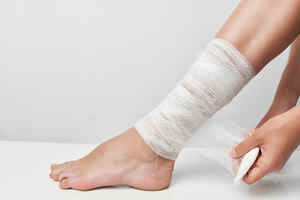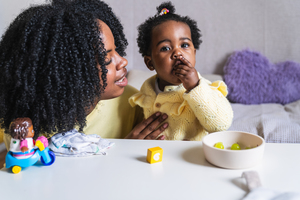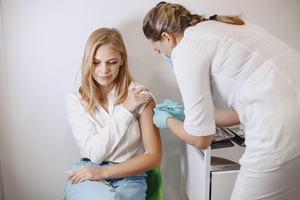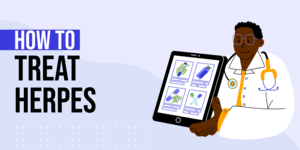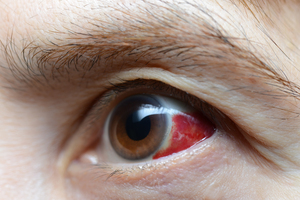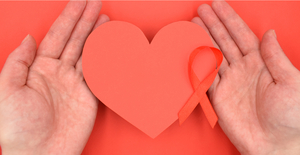Key points
- Dating during the pandemic requires defining your comfort zone and clearly communicating it to potential partners.
- Regular testing, respecting others' boundaries, and staying updated with CDC guidelines are crucial.
- Transparency about exposures is essential, even if it feels awkward or unpleasant.
- The situation is fluid, so it's important to revisit your comfort zone and expectations as circumstances change.
- The article concludes by stating that these questions should be revisited as Covid circumstances change, and encourages staying informed with the latest information and guidelines.
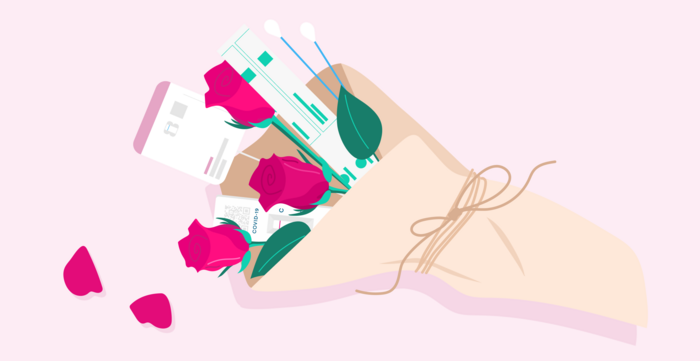
In the best of times, dating can feel hard. But for many people, dating through a global pandemic has been strange, tricky and downright exhausting.
After all, meeting someone new over the last two years has been anything but carefree! Back in the early pandemic days of 2020, socializing indoors with any person probably felt downright terrifying — and potentially posed a very real, tangible threat to your physical wellbeing.
Then vaccinations became available in spring and summer of 2021, opening up another minefield of etiquette questions: When do you ask someone if they’re vaccinated? Do you want to go back to meeting up for dates at a restaurant or bar indoors? Do you talk through each person’s preferences beforehand? How do you know if someone is at a heightened risk of having complications from the virus, or lives with someone who’s immunocompromised?
Just when you thought you’d made it through the summer of 2021’s chapter of ambiguity — the dust had begun to settle, and vaccinated people once again adjusted to the new “new normal” — the Delta variant surge brought on a fresh layer of anxiety around exposure, risk and comfort levels.
Questions around safety, comfort and risk can feel extra delicate to broach in the dating world as you meet people who you don’t know well. Now with the Omicron surge upon us, it might feel like those complicated questions around how to date — questions that have no clear or right answers — are bound to come up again. If uncertainties or frustrations surrounding Covid and dating are on your mind right now, know that you’re not alone. The Solv team has compiled some tips for different ways to think about dating etiquette in Covid year 3.
Define your comfort zone
Think of this as the dating-related spin on “your house, your rules.” There have been many seasons of this pandemic, and it makes sense that your personal risk tolerance and comfort level with different types of dating have likely varied throughout those seasons.
At this moment in time, take a minute to step back and make an honest self-assessment about where you’re at. Have you had Covid recently? Are you boosted? What are the case counts like in your region? Do you want to be dating only people you know, or are you comfortable with blind dates or dates with people you met on apps? Do you only want to be seeing one person at a time, and does it matter to you if your partner might be seeing multiple people?
There are no right answers, but it can be helpful and important to prompt yourself with these questions. Try to accept your boundaries without shame or guilt. It’s just as important to acknowledge the fact that what feels right for you at this moment in time may not be the game plan for your roommate, sister or coworker – and that’s ok. When it comes to dating and COVID, each person has their own comfort zone.
Communicate your boundaries
Once you know how you’re comfortable proceeding, communicate those needs clearly to the person on the other end — don’t leave someone else to read your mind! The following tips, sourced from the Solv team, can help you navigate these conversations.
First, keep in mind that guidance, rules and personal preferences may clash sometimes, creating anxiety or ambiguity around how to proceed when you’re dating someone new. But being direct can help eliminate some of that guesswork and give you the information you need to figure out if a dating situation is the right fit for you.
If you want to know whether the person is fully vaccinated and boosted before meeting for the first time, ask. If you have expectations or questions around recent exposures, raise those thoughts. If you don’t feel comfortable meeting at a crowded bar, say so. If your date doesn’t want to meet in a packed public space but that feels ok to you, respect their wishes — and aim to give your date the same grace you’d hope that they would extend to you.
Transparency is key here, and you can’t expect someone to meet you where you’re at if you don’t express where that is! Remember it’s ok if your comfort level changes; next month, you might consider a date that you wouldn’t go on right now — or vice versa. If living in a pandemic has taught us anything, it’s that “status quo” and our expectations are fluid.
How to navigate exposures when meeting new people
When you’re dating and meeting new people, take the precautions you’d typically take when socializing. If you’re sticking to dining outdoors right now, opt for a patio happy hour. Wear your mask in public spaces and continue to follow the latest CDC guidance for testing, protocols following exposures and symptom management.
Keep in mind that if you’re dating multiple people, or if the person you’re seeing is also dating others, you might face an elevated risk of exposure, according to the CDC. There’s no one way to navigate this, and the answer isn’t necessarily that you must return to isolation – it’s up to you what you feel ok with. We’ve pulled together some information that may help you navigate dating and consider different ways to feel safe as you do.
One option is to take Covid tests more frequently when seeing multiple people, or plan to take a rapid at-home test before a date (just like someone might make a point to consistently get tested for STIs or STD if they’re having sex with multiple partners).
Others might choose to scale back dating during the Omicron surge and wait until case counts dwindle before getting back out there. What’s key is figuring out what feels right to you and then taking precautions accordingly. If you’re looking for places for regular access to COVID testing or STI/STD testing, Solv can help you find convenient, on-demand resources near you.
Disclose, disclose, disclose
Let’s face it: nobody likes sending that text message to family, friends or coworkers to let them know that you were exposed to Covid — and that they were exposed as a result. The social shame and stigma around contracting the virus is decreasing, as Sarah Zhang wrote in The Atlantic — after all, Covid-19 eventually will become endemic, or roughly as commonplace as a cold or the flu, according to Zhang — but it still doesn’t feel fun to alert the people you love that they’re at risk.
It can feel even less fun to alert someone you barely know that you were exposed. Particularly with a first date or someone you met online, it might feel tempting to avoid sending the message altogether and cross your fingers that an infection won’t be traced back to you. However, fight this urge — and treat whoever you’re dating with the same safety concerns, respect and human decency you’d give to a colleague or loved one (even if you didn’t hit it off with them or don’t plan to see them again)! If you’re going to be dating in person during a pandemic, accept the shifting communication expectations and basic need for transparency that come with this reality.
What if you or someone you’re dating gets Covid?
At some point or another, this is bound to happen to you or someone who you know, according to recent data from the CDC. If your date has Covid and you have been exposed, make sure you take a test and gather the information you need to ensure that you’re safe, in accordance with CDC guidelines.
When it comes to showing up for the other person, the etiquette here should be fairly straightforward: treat them like you’d treat a loved one or friend. Check in to see how they’re feeling or whether they’re experiencing symptoms. Ask if they have access to things they need like groceries, pain or fever reducers like ibuprofen or aspirin pulsometers or any other essentials. If their roommates or friends need to find a test or other Covid-related resources, send information their way. For more tips on how to cope with Covid at home, check out this blog post.
You could even offer to drop off an at-home antigen test or send the person you’re seeing some soup and dessert via delivery. Stockpile the podcasts, movie recs or book suggestions — and hang tight until the person’s isolation is over and you both are safe to see each other again, consistent with the CDC’s guidelines.
Summary of Dating Etiquette Suggestions from Solv:
- Define your “dating and Covid comfort zone” during Omicron so you understand what does and doesn’t feel right for you
- Clearly communicate your boundaries and expectations with the person or people you’re seeing
- Get a sense of your date’s preferences and risk tolerance to ensure that you’re on the same page
- Limit exposures as best you can and test often (Solv can help you find testing sites near you)
- Transparency and disclosure is key: be upfront about exposures as they arise, even if those conversations feel awkward or unpleasant
- Stay up-to-date with the latest information and CDC guidance
- Continue to revisit these questions as Covid circumstances change
FAQs
How should I approach dating during the pandemic?
Define your comfort zone, communicate your boundaries, respect others' boundaries, and stay updated with CDC guidelines.
What should I do if I'm uncomfortable meeting someone in a crowded place?
Clearly communicate your discomfort to the other person and suggest an alternative that makes you feel more comfortable.
How often should I get tested if I'm dating multiple people?
The frequency of testing depends on your comfort level and risk tolerance, but regular testing is advisable when seeing multiple people.
What should I do if I find out I've been exposed to Covid-19?
Be transparent about the exposure to anyone you've been in contact with, including your dates, and follow the CDC guidelines for testing and isolation.
What should I do if someone I'm dating gets Covid-19?
Treat them with kindness and offer help where you can, such as dropping off groceries or sharing resources for managing Covid at home.
How should I handle disclosing a Covid-19 exposure to someone I'm dating?
Transparency is key when it comes to disclosing a Covid-19 exposure. Even if it's uncomfortable, it's important to treat the person you're dating with the same safety concerns and respect you'd give to a loved one or colleague.
How can I navigate dating multiple people during the pandemic?
If you're dating multiple people, you may face an elevated risk of exposure. One option is to take Covid tests more frequently, or plan to take a rapid at-home test before a date. It's also important to be transparent about exposures and to respect each other's comfort levels and boundaries.
Where can I find resources for Covid testing or STI/STD testing?
Solv can help you find convenient, on-demand resources for Covid testing or STI/STD testing near you.

